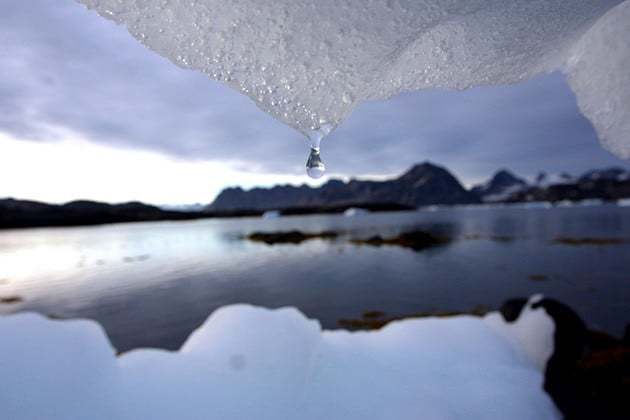
Last week, President Obama unveiled the Clean Power Plan, a pillar of his legacy project and his most ambitious exercise of executive authority to combat climate change. The proposed regulations are designed to cut greenhouse gas emissions from power plants by almost a third from 2005 levels within the next 15 years. The potential for the biggest climate change victory in years follows a banner year for climate change journalism. We’ve compiled some of the best stories:
BuzzFeed, November 2014
A century-old Australian wine producer has bought a farm in Tasmania, an island considered by some to be too cold to yield good wine. But the company, Brown Brothers, argues it’s a smart investment: The climate around its current vineyards is fast becoming too warm.
Des Moines Register, September 2014
Iowa farmers are facing pressures from all sides to do something about climate change, and even those who don’t believe in it are being forced to respond. The federal government wants to prevent fertilizers used on Midwestern farms from flowing into the Gulf of Mexico. Big box retailers want protection against price shocks. Meanwhile, Iowa farmers seek to protect their land from increased rain, which causes erosion and strips nutrients from the soil. Acting on all these pressures can be costly and, sometimes, detrimental to production.
Politico, May 2015
An army of Sierra Club lawyers who appear at obscure state and local hearings in the Midwest – where small commissions debate the future of individual coal plants – has managed to shut down one coal plant every 10 days for the past 5 years thanks to the unlikely funding of large corporations. The spirit of the funders, however, has little to do with environmental concern and a lot to do with the escalating costs of producing coal, a result of the government’s ever-tougher environmental regulations.
The Guardian, June 2015
Some of the world’s largest pension funds – including those of organizations like the United Nations, which advocate for urgent action to prevent climate change – have historically invested generously in coal companies. But now those investments, which used to produce handsome returns, could collapse.
Foreign Policy, January 2015
After Ioane Teitiota, a native from the sinking island nation of Kiribati in the South Pacific, sought a work visa extension in New Zealand, his lawyer argued that Teitoiota was a victim of climate change in need of permanent refugee status. The campaign was ultimately unsuccessful but drew significant international attention to the reality and potential effects of rising ocean levels.
Inside Climate News, June 2015
Oil companies have long fought against anyone who demands change based on apocalyptic predictions of climate change, including their own investors. In fact, over the past 25 years, top executives at Exxon, Chevron and ConocoPhillips battled a combined 113 proposals from activist investors that ranged from adding board members with climate change expertise to establishing ceilings for greenhouse emissions. Not a single proposal passed.


